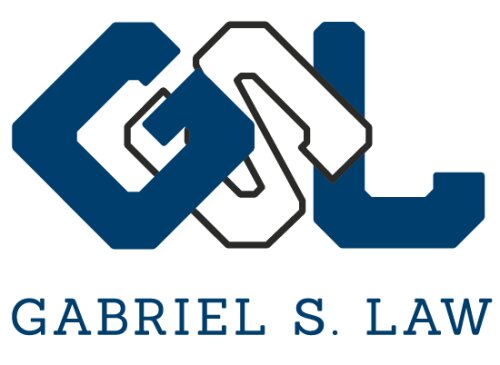Best Bankruptcy & Debt Lawyers in Illinois
Share your needs with us, get contacted by law firms.
Free. Takes 2 min.
Or refine your search by selecting a city:
List of the best lawyers in Illinois, United States
United States Bankruptcy & Debt Legal Articles
Browse our 2 legal articles about Bankruptcy & Debt in United States written by expert lawyers.
- Filing Chapter 7 in 2026 United States: New Income Limits
- Chapter 7 gives a near-total discharge of most unsecured debt, but you must pass a "means test" that compares your household income to your state's median income for your family size in 2026. The U.S. Trustee Program updates the state median income numbers at least once a year; you qualify... Read more →
- Debt Collectors in the US: Stop Harassment and Verify Debt
- You have strong federal rights under the Fair Debt Collection Practices Act (FDCPA) and CFPB Regulation F. Collectors cannot harass you, must send a validation notice, and must stop collecting until they verify if you dispute in writing within 30 days. Tell collectors to stop contacting you, then follow up... Read more →
About Bankruptcy & Debt Law in Illinois, United States
Bankruptcy and debt law in Illinois is designed to help individuals and businesses who are unable to repay their debts. Bankruptcy provides a legal process for those struggling with overwhelming debt to either eliminate their obligations or develop a structured repayment plan. Debt law also includes situations outside of bankruptcy, such as negotiating with creditors, understanding consumer rights, and defending against collections or lawsuits. Illinois follows federal bankruptcy law, but also has its own state-specific rules and exemptions that can affect the outcome of bankruptcy cases. Understanding your options and rights is crucial when navigating these complex issues.
Why You May Need a Lawyer
Many people facing financial difficulties are unsure whether they need an attorney. Legal advice is often crucial in the following situations:
- If you are considering filing for bankruptcy (either Chapter 7 or Chapter 13) and need help deciding which type is best for your circumstances.
- If you have received collection lawsuits or foreclosure notices, or are being harassed by debt collectors.
- If you have questions about which debts can be discharged in bankruptcy.
- If you want to stop wage garnishment or repossession of property.
- If you need assistance understanding Illinois’ exemptions and how they apply to what you own.
- If you are a small business owner or are dealing with significant unsecured or secured debts.
- If you want to negotiate a repayment plan or settlement with creditors outside of court.
- If you are trying to rebuild your credit after financial hardship and need guidance about best practices.
A lawyer can help you assess your options, protect your rights, and avoid costly mistakes.
Local Laws Overview
Bankruptcy cases in Illinois are primarily governed by federal law, specifically the United States Bankruptcy Code. However, Illinois also has state-specific provisions that impact bankruptcy and debt matters. Some key aspects include:
- Bankruptcy filings are handled in the United States Bankruptcy Courts for the Northern, Central, and Southern Districts of Illinois.
- Illinois offers its own set of exemptions, which can protect certain property (such as a portion of home equity, automobile value, personal property, retirement accounts, and more) from being seized to pay creditors.
- Residents cannot combine federal and state exemptions, but must choose one set.
- Illinois law regulates the activities of debt collectors and provides consumer protections against unfair or deceptive practices through both state and federal laws, including the Illinois Collection Agency Act and the federal Fair Debt Collection Practices Act (FDCPA).
- Eviction, foreclosure procedures, and wage garnishment all have rules unique to Illinois in addition to federal mandates.
- Some debts, like child support and certain taxes, are generally not dischargeable in bankruptcy under both federal and state law.
Frequently Asked Questions
What types of bankruptcy are available in Illinois?
Illinois residents can generally file for Chapter 7 (liquidation) or Chapter 13 (reorganization) bankruptcy. Chapter 7 is for individuals with limited income and assets, while Chapter 13 allows repayment of debts over three to five years.
Who is eligible to file for bankruptcy in Illinois?
Individuals, married couples, and business entities can file for bankruptcy in Illinois, provided they meet certain income and residency requirements as set forth in federal and state law.
What property can I keep if I file for bankruptcy in Illinois?
Illinois law allows you to keep certain exempt property, such as a personal residence (up to a specified equity amount), some personal belongings, retirement accounts, and a vehicle (up to a value limit). The exact exemptions are set by state law.
How does bankruptcy affect my credit?
Bankruptcy will stay on your credit report for 7 years (Chapter 13) or 10 years (Chapter 7). While it initially lowers your credit score, many people are able to rebuild credit after bankruptcy.
Can I stop wage garnishment or foreclosure by filing for bankruptcy?
Yes. Filing a bankruptcy petition usually triggers an automatic stay, which stops most collection actions including wage garnishment, foreclosure, and repossessions during the bankruptcy process.
Do I have to go to court if I file for bankruptcy?
Typically, you will need to attend a meeting of creditors, also known as a 341 meeting, but not a formal court hearing. In some cases, additional court appearances may be required.
Are all debts wiped out in bankruptcy?
No. Certain debts, such as student loans (in most cases), recent taxes, child support, and alimony, cannot be discharged in bankruptcy except under rare circumstances.
Can I file for bankruptcy without a lawyer?
While it is legally possible to file without a lawyer, the bankruptcy process is complex and mistakes can be costly. Consulting with an experienced attorney is strongly recommended, especially for Chapter 13 or more complex cases.
What is Illinois’ homestead exemption?
Illinois law allows you to protect up to $15,000 in equity in your primary residence, or $30,000 for a married couple filing jointly. This means you can keep your home up to this value in a bankruptcy.
How much does bankruptcy cost in Illinois?
Court filing fees and required courses (credit counseling and debtor education) typically cost several hundred dollars. Attorney fees are additional and vary based on the type and complexity of your case.
Additional Resources
For more information or assistance regarding bankruptcy and debt laws in Illinois, consider the following resources:
- Illinois Attorney General's Office - Provides consumer protections, resources, and help for dealing with debt and collection practices.
- United States Bankruptcy Court for the Northern, Central, and Southern Districts of Illinois - Offers guides, filing information, and forms.
- Legal Aid Chicago - Offers free or low-cost legal help for qualifying individuals facing debt problems.
- Illinois Legal Aid Online - Provides articles, self-help tools, and information about bankruptcy, debt negotiation, and financial recovery.
- Consumer Financial Protection Bureau - Offers comprehensive tools and information about managing debt and working with creditors.
- National Association of Consumer Bankruptcy Attorneys - Helps you find attorneys with experience in bankruptcy law.
Next Steps
If you are considering bankruptcy or facing significant debt-related challenges, take the following steps:
- Gather all your financial documents, including debts, income, assets, and expenses.
- Determine your goals, such as stopping harassment, saving your home, or eliminating credit card debt.
- Consult with a qualified bankruptcy or debt attorney in Illinois to gain personalized legal advice. Many lawyers offer free or low-cost initial consultations.
- If you qualify, reach out to legal aid organizations for guidance and potential representation.
- Be cautious of debt settlement companies and always check their legitimacy with state agencies or the Illinois Attorney General’s Office.
- Stay informed about your rights and options to make wise decisions for your financial future.
Starting with professional advice can help you avoid costly errors and achieve the best possible result for your situation.
Lawzana helps you find the best lawyers and law firms in Illinois through a curated and pre-screened list of qualified legal professionals. Our platform offers rankings and detailed profiles of attorneys and law firms, allowing you to compare based on practice areas, including Bankruptcy & Debt, experience, and client feedback.
Each profile includes a description of the firm's areas of practice, client reviews, team members and partners, year of establishment, spoken languages, office locations, contact information, social media presence, and any published articles or resources. Most firms on our platform speak English and are experienced in both local and international legal matters.
Get a quote from top-rated law firms in Illinois, United States — quickly, securely, and without unnecessary hassle.
Disclaimer:
The information provided on this page is for general informational purposes only and does not constitute legal advice. While we strive to ensure the accuracy and relevance of the content, legal information may change over time, and interpretations of the law can vary. You should always consult with a qualified legal professional for advice specific to your situation.
We disclaim all liability for actions taken or not taken based on the content of this page. If you believe any information is incorrect or outdated, please contact us, and we will review and update it where appropriate.
Browse bankruptcy & debt law firms by service in Illinois, United States
Illinois, United States Attorneys in related practice areas.
Browse bankruptcy & debt law firms by city in Illinois
Refine your search by selecting a city.













